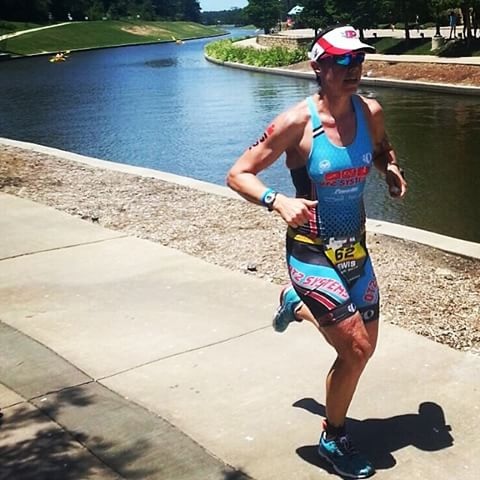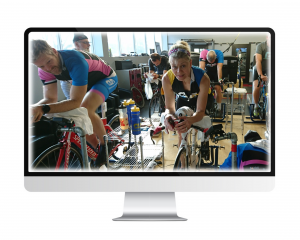Ironman racing requires some special planning and organizing just because of the length of time you are out there racing. Whether you take 9 hours or 17 hours, it is a large amount of time to be pushing your body outside its comfort zone. Here some things to consider:
- Nutrition – Day to day nutrition is very important for recovery between workouts in the same day and from one day to the next. Many long distance athletes think they can eat whatever they want because they burn so many calories, but the fact is, we need our bodies to heal after workouts and in order to do that we need to be eating nutrient dense foods. That means vegetables, fruits, healthy fats and lean proteins.
- Sports Nutrition – What you eat before, during and after your workout is important for both performance and recovery. Sixty to ninety minutes pre workout aim to eat a high glycemic carbohydrate that will give you quick access to energy. During a workout 90 minutes or longer (OR a shorter workout with a lot of intensity) you should be consuming one to two 750ml bottles of electrolyte drink (the amount depends on the amount that you sweat) and getting in 60-90 grams of carbohydrates per hour (the amount depends on your body size) through a combination of sports bars, gels and sports drink. Fat and protein should be minimized during exercise as it takes more energy to digest these macronutrients and can cause digestive distress. Look at the sports products you are using and come up with a combination that gets you what you need. Aim to get the calories in by taking them frequently throughout each hour so you have a constant supply.
- Get comfortable on your bike! – Because of our climate, location and the availability of programs like Zwift it is easy to get comfortable riding your bike on your indoor trainer and not going outside as often. However, going outside, especially as a new rider, is very important for you to get comfortable on your bike. This means feel good about cornering, knowing how to respond to things like gravel on the road or riding over a pothole or dealing with wind.
- Manage your efforts – Knowing your training and racing heart rate zones is very important for all of us but becomes even more important as the distance of your race increases. How a certain heart rate feels at the start of a 180km bike ride, for example, versus at the end of it are very different. Knowing your zones and having a race plan based on that (that you have practiced!) will allow you to race strong and steady and help to avoid hitting that “wall” that is often hit from pushing to hard at the beginning. Ironman racing is about patience. It is a long way to go and requires patience to follow your plan mile after mile after mile and not respond to what other athletes may be doing around you.
- Practice, practice, practice – Training at your race intensity for long durations, while following your nutrition plan exactly, is very important for making sure your body is ready to accept it on race day. You need to be familiar with the physical and mental feelings you will have as you go through the race. Know what your body will feel like physically after completing a 180km bike ride at prescribed intensity and then starting to run. Know what you may experience mentally at the 120km mark on the bike ride, as this is typically where everyone has a holy sh*t moment thinking about how far they have come yet how far they have left. Learn how to deal with these things and not be surprised with them on race day. Training your body to accept the nutrition that you plan to give it is also important. Many times athletes are resistant to taking so many calories during workouts, however along it with it being important for performance and recovery day to day, it is also important for training your digestive tract to accept it.
There are a lot of things to think about when you decide to attempt an Ironman and this holds true for someone doing their first one and someone who has done many of them already. For those doing their first, we want you to get through your first race feeling strong and positive. After that, it’s about tweaking things to get a series of small improvements that all add up. Talk to your CLPT coach about a more specific plan for you to get from now to Ironman!



